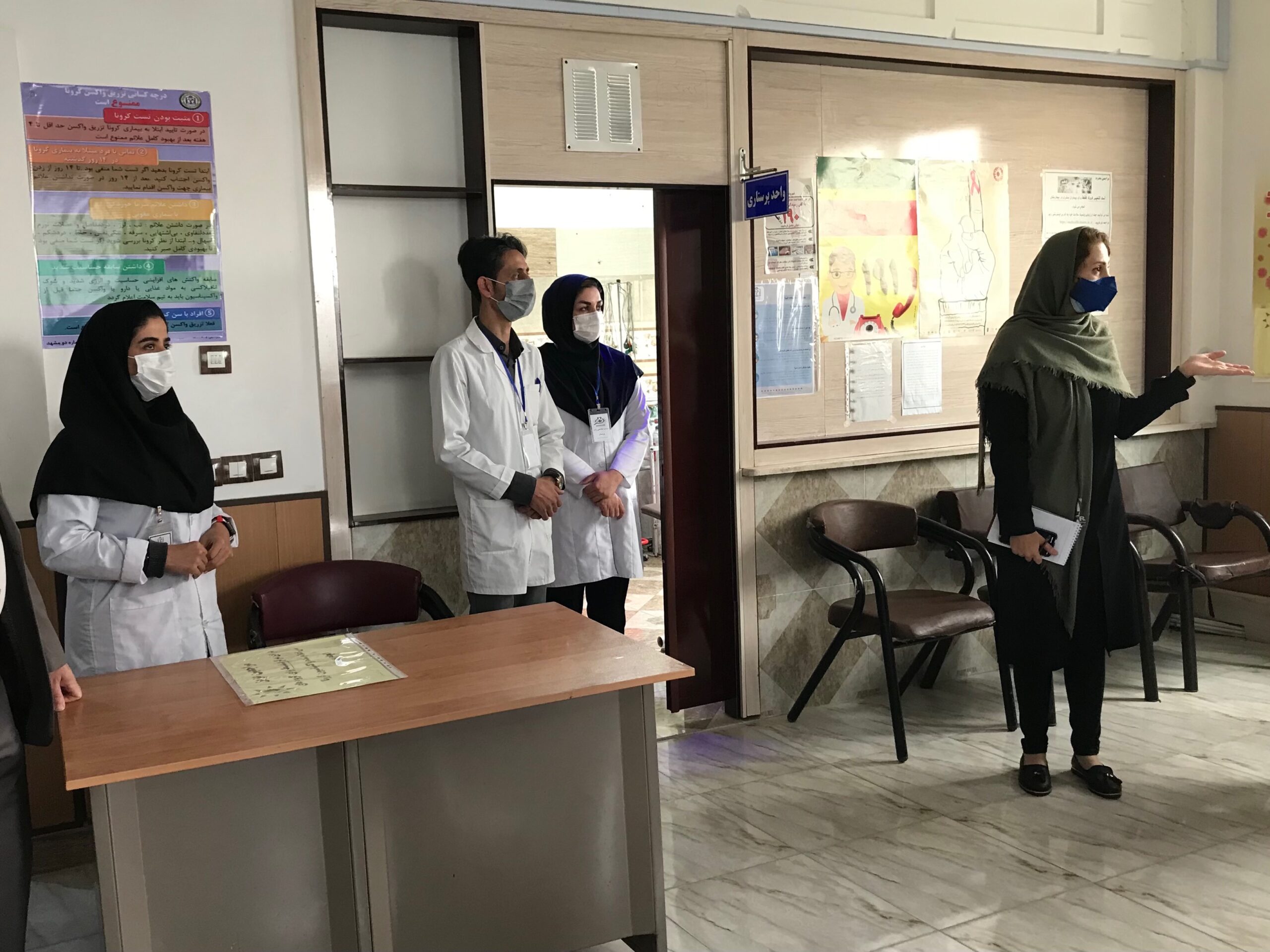
The European Union and member states visit a health post in the Afghan refugee-hosting area of Golshahr in Mashhad, Khorasan Razavi Province.
Tehran, Iran – The European Commission’s humanitarian branch, namely the Directorate-General for European Civil Protection and Humanitarian Aid Operations (ECHO), visited Iran over the last ten days, in order to obtain a first-hand and updated understanding of the context, the needs of Afghan refugees and related priorities.
During its visit, ECHO increased its funding to the UN Refugee Agency (UNHCR) in Iran, from EUR 6 million to EUR 8 million for 2021, in support of Afghan refugees and host communities, making it the largest individual donor to UNHCR in Iran.
“We sincerely welcome and thank ECHO for visiting Afghan refugees, and meeting with the Government of Iran and operational actors, to discuss ongoing cooperation in the response to the unfolding crisis,” said Mr. Ivo Freijsen, UNHCR Representative in Iran. “At this critical moment, with an increase in the number of Afghans entering the country, this mission demonstrates the international community’s ongoing role and commitment to help Afghan refugees in host countries like Iran, which have generously hosted them for over 40 years.”
“The international community, together with the Government of Iran, has to constructively engage on how best to meet the increasing needs of refugees and host communities,” said Ms. Taheeni Thammanagoda, who led the mission and heads the ECHO Islamabad Office, which covers Iran.
While in Iran, the ECHO delegation met with the Bureau for Aliens and Foreign Immigrants’ Affairs (BAFIA) and with the Ministry of Foreign Affairs (MFA), to discuss priority needs and the Government’s response, which includes refugee-inclusive programs such as education, cash-based assistance and the Universal Public Health Insurance (UPHI). In addition, the ECHO team visited UNHCR’s reception centres, where services are provided to refugees, as well as a warehouse where UNHCR stores basic food and household items, and COVID-19 mitigative items, to dispatch in case of an emergency.
On a visit to Torbat-e-Jam refugee settlement, in Khorasan Razavi Province, the delegation also met with Afghan families and representatives, and visited schools and health posts funded by ECHO.
The delegation also met with other actors whose support is essential in the domain of refugee protection and assistance in Iran, including national NGOs, UN agencies, and international partners. These international partners, who also receive funding from ECHO, include Relief International, the Norwegian Refugee Council, the International Committee of the Red Cross, the International Federation of Red Cross, and Red Crescent Societies and Medicins Sans Frontieres.
Throughout their visit, ECHO was joined by different members of the European Union who also support Afghan refugees in Iran – namely Germany, Denmark, Finland, and Italy.
Support from the European Union (EU), both via ECHO and via EU member states, exemplifies the spirit of responsibility-sharing, international cooperation, and solidarity outlined in the Global Compact on Refugees (GCR). This international framework aims to ensure that refugee-hosting countries, like Iran, get the support they need from the international community, recognizing that a sustainable solution to refugee situations cannot be achieved without international cooperation.
The Afghan displacement situation is the most protracted and third-largest in the world. The situation in Afghanistan remains volatile and sustained international support for UNHCR’s programmes will be needed in 2022 and beyond – both to ensure adequate emergency support for new arrivals and to continue helping Afghan persons of concern who are already in Iran.
END
Share on Facebook Share on Twitter